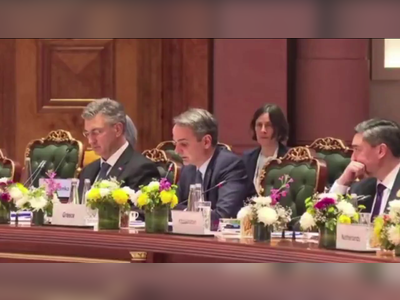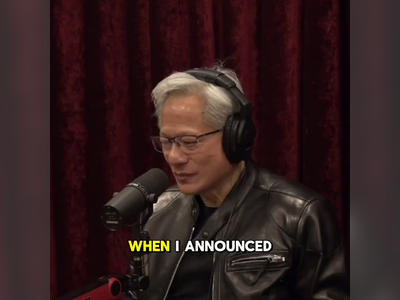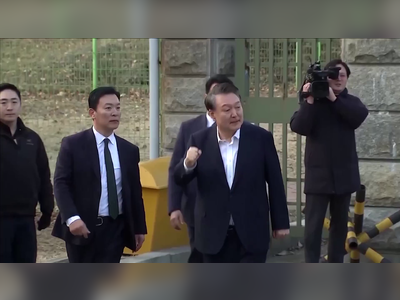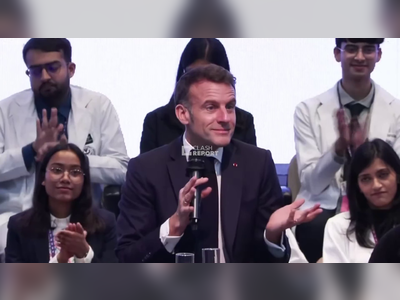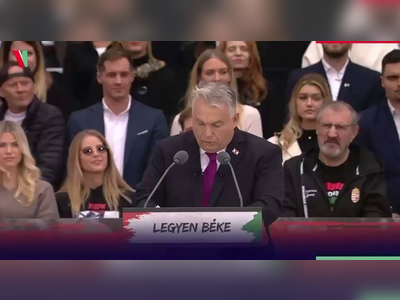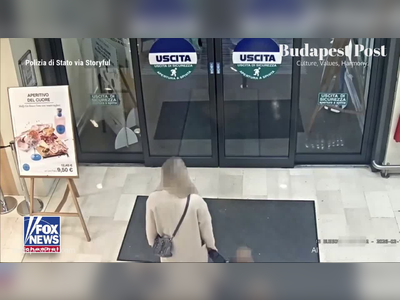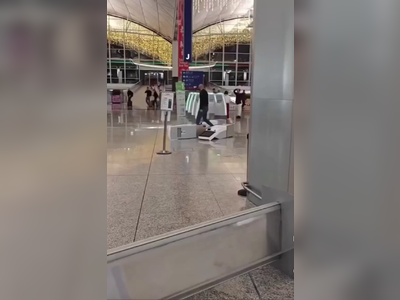
Russia Built Parallel Payments System That Escaped Western Sanctions
Crimea sanctions spurred Russia to build its own Mir payments network, taking the sting out of Visa, Mastercard exits
Western sanctions have disrupted nearly every part of Russia’s financial system, but there is one big exception.
The domestic-payments system continued to work smoothly after Visa Inc. and Mastercard Inc. pulled out earlier this month. While the card giants’ exit from Russia was viewed as a significant move by many in the West, the reality on the ground was anything but. Most Russian consumers never lost the ability to use their Mastercard- and Visa-branded cards to pay for things within the country.
There were roughly 197 million Mastercard or Visa cards in Russia at the end of 2020, according to the Nilson Report, a trade publication. But behind the scenes, the cards don’t rely on the U.S. networks’ systems to process payments in Russia. For years, they have used a homegrown system overseen by Russia’s central bank.
The National Payment Card System – known by the Russian initials NSPK – runs the financial plumbing that supports card transactions in Russia, even for cards with the Visa and Mastercard logos.
The system was part of Moscow’s eight-year effort to insulate the Russian economy from Western financial pressures. The Kremlin has also aggressively bolstered a private Russian card company, Mir, which is built on NSPK’s infrastructure. More than 100 million Mir cards have been issued since its launch in 2015, according to the Mir website.
The effects of harsh economic sanctions against Russia are already beginning to be felt around the world. Greg Ebb of the Wall Street Journal joins other experts to explain the significance of what has happened so far and how the conflict can transform the global economy. Photo illustration: Alexander Hotz
The resilience of Russia’s payments system is a rare victory for President Vladimir Putin in his financial war with the West. Russia failed to break its dependence on Western imports, and the country was left in dire need of key parts for industrialization. Before the war, Russia had amassed $630 billion in reserves to ensure it could protect the ruble, but that effort was undermined when the United States and the European Union froze the assets of the Russian Central Bank.
“We have provided our national security in the field of payments,” said Alma Obaieva, head of the National Payments Council, a Russian trade association.
The decline of Visa and Mastercard had significant consequences for the Russians: in many cases, their cards now do not work outside the country. The Mir network extends to a few countries besides Russia, most of which are former Soviet republics. Russian officials have held talks in recent days to expand it to Venezuela and Iran, according to reports from state news agency TASS. Some Russian banks have said they are exploring partnerships with China’s UnionPay to issue cards that their customers can use more widely.
However, the inability of Russians to use their cards to withdraw money or make purchases abroad is in line with the Kremlin’s goal of holding assets in the country. Some Russians who fled said cutting Visa and MasterCard played Putin’s favour.
On a call in February to discuss possible Russia sanctions, executives from Visa, Mastercard and other payments companies told Treasury officials that blocking US networks from handling Russian banking transactions wouldn’t be particularly painful, according to people familiar with the matter. They said the sanctions would simply push more transactions to Mir.
The domestic-payments system continued to work smoothly after Visa Inc. and Mastercard Inc. pulled out earlier this month. While the card giants’ exit from Russia was viewed as a significant move by many in the West, the reality on the ground was anything but. Most Russian consumers never lost the ability to use their Mastercard- and Visa-branded cards to pay for things within the country.
There were roughly 197 million Mastercard or Visa cards in Russia at the end of 2020, according to the Nilson Report, a trade publication. But behind the scenes, the cards don’t rely on the U.S. networks’ systems to process payments in Russia. For years, they have used a homegrown system overseen by Russia’s central bank.
The National Payment Card System – known by the Russian initials NSPK – runs the financial plumbing that supports card transactions in Russia, even for cards with the Visa and Mastercard logos.
The system was part of Moscow’s eight-year effort to insulate the Russian economy from Western financial pressures. The Kremlin has also aggressively bolstered a private Russian card company, Mir, which is built on NSPK’s infrastructure. More than 100 million Mir cards have been issued since its launch in 2015, according to the Mir website.
The effects of harsh economic sanctions against Russia are already beginning to be felt around the world. Greg Ebb of the Wall Street Journal joins other experts to explain the significance of what has happened so far and how the conflict can transform the global economy. Photo illustration: Alexander Hotz
The resilience of Russia’s payments system is a rare victory for President Vladimir Putin in his financial war with the West. Russia failed to break its dependence on Western imports, and the country was left in dire need of key parts for industrialization. Before the war, Russia had amassed $630 billion in reserves to ensure it could protect the ruble, but that effort was undermined when the United States and the European Union froze the assets of the Russian Central Bank.
“We have provided our national security in the field of payments,” said Alma Obaieva, head of the National Payments Council, a Russian trade association.
The decline of Visa and Mastercard had significant consequences for the Russians: in many cases, their cards now do not work outside the country. The Mir network extends to a few countries besides Russia, most of which are former Soviet republics. Russian officials have held talks in recent days to expand it to Venezuela and Iran, according to reports from state news agency TASS. Some Russian banks have said they are exploring partnerships with China’s UnionPay to issue cards that their customers can use more widely.
However, the inability of Russians to use their cards to withdraw money or make purchases abroad is in line with the Kremlin’s goal of holding assets in the country. Some Russians who fled said cutting Visa and MasterCard played Putin’s favour.
On a call in February to discuss possible Russia sanctions, executives from Visa, Mastercard and other payments companies told Treasury officials that blocking US networks from handling Russian banking transactions wouldn’t be particularly painful, according to people familiar with the matter. They said the sanctions would simply push more transactions to Mir.
AI Disclaimer: An advanced artificial intelligence (AI) system generated the content of this page on its own. This innovative technology conducts extensive research from a variety of reliable sources, performs rigorous fact-checking and verification, cleans up and balances biased or manipulated content, and presents a minimal factual summary that is just enough yet essential for you to function as an informed and educated citizen. Please keep in mind, however, that this system is an evolving technology, and as a result, the article may contain accidental inaccuracies or errors. We urge you to help us improve our site by reporting any inaccuracies you find using the "Contact Us" link at the bottom of this page. Your helpful feedback helps us improve our system and deliver more precise content. When you find an article of interest here, please look for the full and extensive coverage of this topic in traditional news sources, as they are written by professional journalists that we try to support, not replace. We appreciate your understanding and assistance.
